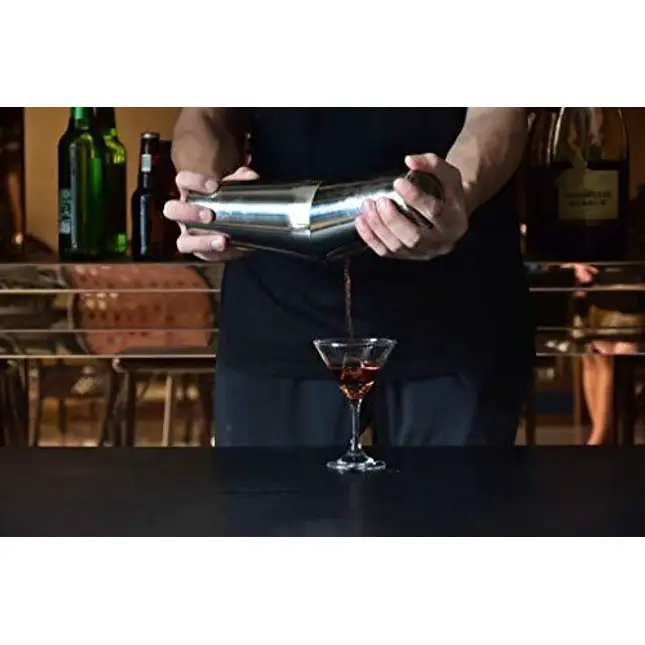BOSTON SHAKER


Sinrextraonry UERJHHERB Stainless Steel Commercial Bar Boston Shaker Tin Set - 28oz. & 18oz Cocktail Shaker Set of Two
Brand: SinrextraonryColor: Stainless SteelFeatures: Practical Design. Exceptionally balanced custom shape for a solid seal, shake, and separation every time Maximum Durability. Made from the heaviest 100% stainless steel of any shaker on the market and built with reinforced 360 degree welding for the weight caps on both tins. A Perfect Pair. Includes two tins made for each other - one 28 oz. and one 18 oz. Beautiful Construction. Mirror polished stainless steel exterior and brushed stainless steel interior. Part Number: Cocktail Shaker Set-2Details: Size:28oz. & 18oz. (1 Pair) UERJHHERB Stainless Steel Commercial Bar Boston Shaker Set includes two professional grade stainless steel cocktail shakers built for years of commercial use. The 28oz and 18oz shakers are built with the heaviest stainless steel of any shaker on the market (40% heavier than the industry's leading brands) and designed for perfect balance, with consistent sealing and separation. Built with reinforced 360 degree welding for the weight caps on both tins.Package Dimensions: 7.0 x 3.6 x 3.6 inches
$ 21.99
The Boston shaker is a preferred choice among professional bartenders because it is more versatile and can accommodate a larger volume of ingredients compared to other types of shakers. Additionally, the glass or tin used in the Boston shaker can also be used for other purposes, such as stirring or measuring ingredients.
What is the difference between a Boston shaker and a cocktail shaker?
A Boston shaker is a type of cocktail shaker, and the main difference between a Boston shaker and other types of cocktail shakers is the design. A Boston shaker consists of two parts: a metal shaker tin and a mixing glass or smaller metal tin, which are used together to create a seal and shake the ingredients.
Why is it called a Boston shaker?
The exact origin of the name "Boston shaker" is unclear, but it is believed to have originated in the early 1900s in Boston, Massachusetts. One theory suggests that it was named after the Boston hotel where it was first used, while another theory suggests that it was named after the Boston area bartenders who popularized its use.


















